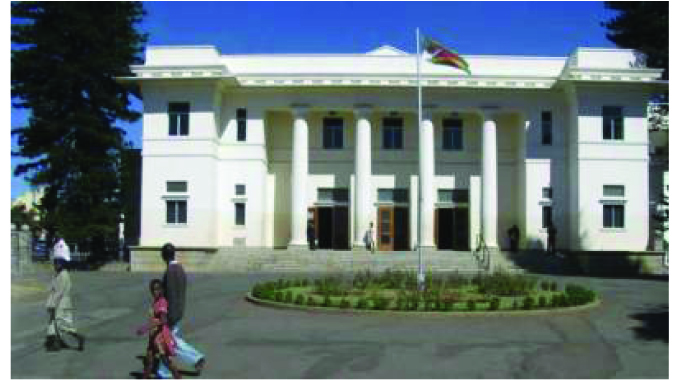Embrace nano-learning to support teaching and learning

Simbarashe Murima, [email protected]
In this modern era of education and learning as a lifelong process of a revolutionary transformation of information and experiences into skills and knowledge, technology has become an integral development in contemporary education.
Education and learning is ephemeral. The sea change in education and learning due to capricious learning environments, culture, pandemics, policies and knowledge acquisition has led to the adoption of innovative theories, models, ideologies and techniques in instruction.
The Ministry of Higher and Tertiary Education, Innovation, Science and Technology Development introduced a modularisation approach to learning in tertiary institutions as a way to help reduce cognitive load on learners and shifting traditional methods of instruction to an outcome-based learning prototype.
Conversely, the modularisation of courses in Zimbabwe has posed a challenge for students who are simple-minded and slow in learning, despite the fact that the method reduces student’s load of writing a number of subjects in a semester.
Modular learning in tertiary institutions in Zimbabwe involves short learning of one or two courses, followed by an exam at the end of approximately four weeks of study.
Therefore, embracing the nano-learning method will help alleviate the aforesaid challenges faced by slow learners and others.
Nano-learning, also known as micro-learning, is a technological learning method that delivers content in small parts to make it easier for learners to absorb and recall the information through texts and short videos and provides clear instructions to the learner.
These learning nuggets are typically between one to twelve minutes in length, focusing on teaching a precise skill within the learning objective of the course, thus making them easily accessible and digestible within a short time frame.
Relatively, this method takes multifaceted topics and breaks them down into smaller contexts. Learners can therefore access nano-learning courses anytime, wherever, by means of digital devices, such as laptops, smartphones, or tablets.
Nano-learning can be applied in many diverse disciplines such as tourism, hospitality, education, statistics, medicine, business management, Information Technology (I.T) and agriculture.
For example, YouTube is the most discernible social platform that creates increasingly shorter content for nano-learning efficacy.
Courses can be designed with content in multiple formats such as videos, podcasts, and even quizzes, making learning highly engaging.
One of the benefits of nano-learning is that it promotes active engagement and retention of information.
This may include answering questions, solving problems, or engaging in interactive activities that buttress the learning directives.
This active engagement aids learners in retaining information better and applying it in real-world situations, enhancing the overall learning know-how.
Nano-learning is a highly exclusive learning method that is being incorporated into many educational environments in this technologically advanced world.
Additionally, nano-learning components are characteristically short and engaging, which helps to keep learners enthused and focused on the content.
Effective nano-learning exposes student’s needs, strengths, weaknesses, aptitudes and skills in learning.
This makes the learning experience more enjoyable and helps to keep both lecturers and students driven and engaged in their professional development activities.
Quintessentially, nano-learning will play a constitutive role for primary, secondary and tertiary educators and students as it expedites technological reinforcement of their teaching and learning particularly for students and succours them to learn at their own pace, grasp ideas easily, and thus reducing their knowledge acquisition load.
*Simbarashe Murima (PhDc) writes in his own capacity as an education, tourism and hospitality expert in Namibia and Zimbabwe. Feedback: [email protected] or 0781480742/ +264814571709 (WhatsApp)












Comments